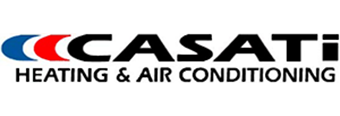Air Conditioner Buying Tips for Ontario Homeowners
Nowadays, most homes have central air conditioning, which is a necessity during the peak Canadian summer months when temperatures can soar to up to 33 degrees Celsius with extreme humidity. The cost of a new air conditioner unit can range from $2600 to $6000, including installation, depending on your home’s requirements and other considerations. While this might be a major investment initially, it is one that is necessary for your home comfort and well-being. If you’re looking to purchase a new air conditioner, there are several aspects to consider prior to doing so. Following are some helpful air conditioner buying tips:
- Ensure that you hire a skilled HVAC contractor who is knowledgeable and experienced with installing residential air conditioning units. Get at least three estimates from qualified contractors before deciding on the A/C unit and installer. While cost is important, don’t choose only based on price-point. Find out how long the HVAC company has been in business, what its reputation is, and whether the brands it installs are reliable and of high quality. A good place to start is by researching the HVAC company/contractor online at your local Better Business Bureau or by reading brand reliability surveys conducted by organizations like ‘Consumer Reports’.
- A more efficient air conditioner will take less energy to run and cool the entire house. Air conditioner units use hydro (electricity) to operate. In Ontario, we use our central air conditioners on average for approx. 3-4 months a year. Today’s air conditioning units offer SEER (Seasonal Energy Efficiency Ratio) levels beginning at 13 SEER. A SEER rating is a maximum efficiency rating. A 13 SEER air conditioner is considered high efficiency and more than adequate for usage during our Canadian summer months. These high efficiency air conditioners assist homeowners in reducing energy costs significantly. Note that it is important that the efficiency rating is indicated on the air conditioner plate.
- A qualified HVAC contractor will help you determine the appropriate tonnage of the A/C unit required in your home based on the size of your home and other specifications. This is an important step because units that are too small will have to work harder to cool the home, while over-sized units will not only be a waste of money, but could also cause an uncomfortable experience with cooling distribution and the irregular operation of the unit switching on/off.
- Before going ahead with an installation, get an estimate which includes the total cost of purchasing the A/C unit, including installation. Sign a detailed contract which includes the brand, model number, size and any warranties for the A/C unit you’re purchasing and having installed in your home. Make sure all the costs are clearly indicated on your contract in advance. Your contract should also include your HVAC contractor’s payment policy.
